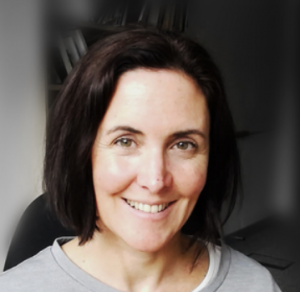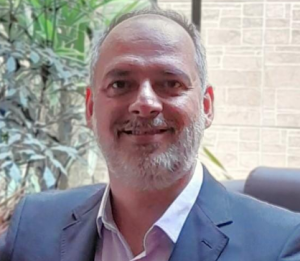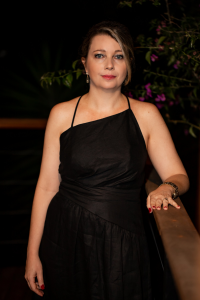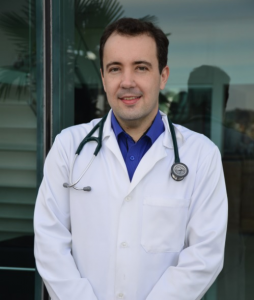Short-Course (15 hours)
July 22nd to July 30th
Discover the Future of Cardiology with “Digital Twins of the Heart” Short Course
Join us for an exclusive short course, “Digital Twins of the Heart,” hosted by distinguished professors, cardiologists, and researchers from the University of Oxford, King´s College London, Ebserh- University Hospital Juiz de Fora, and the Federal University of Juiz de Fora. This intensive program, spanning from July 22nd to July 30th, will delve into the cutting-edge field of cardiac digital twins, offering a blend of theoretical knowledge and practical insights.
This course is designed for physicians, biologists, engineers, applied mathematicians, and professionals from related sciences, providing a multidisciplinary approach to this revolutionary technology.
(face-to-face activities)
Course Schedule:
July 22nd
Introduction to Digital Twins of the Heart
Begin your journey with an overview of digital twin technology and its transformative potential in cardiology.
July 23rd
Introduction to Cardiac Anatomy and Electrophysiology
Gain a foundational understanding of the heart’s structure and the principles of cardiac electrophysiology.
July 24th
Cardiac Cell Electrophysiology, Models of Drug and Pathologies
Explore the electrophysiological behavior of cardiac cells and learn about modeling drugs and pathological conditions.
July 26th
Generating Anatomical Models
Discover the techniques and tools used to create accurate anatomical models of the heart.
July 29th, Morning
From Cell Electrophysiology to Whole Heart
Understand the integration of cellular electrophysiology into comprehensive heart models.
July 29th, Afternoon
In Silico Trials
Learn about the implementation of digital twins in virtual clinical trials and their impact on research and development.
July 30th
Digital Twins of the Heart
Conclude with an in-depth discussion on digital twin technology’s current state and future directions in cardiology.
Don’t miss this unique opportunity to learn from the best in the field and stay at the forefront of cardiology and computational modeling research. Enroll now to secure your spot!
Lecturers
Blanca Rodriguez, University of Oxford, UK

Professor Blanca Rodriguez is Professor of Computational Medicine, Wellcome Trust Senior Research Fellow and Head of the Computational Biology and Health Informatics Theme at the Department of Computer Science, University of Oxford. She has raised over £40 million as principal or co-investigator and leads the Computational Cardiovascular Science team (www.cs.ox.ac.uk/ccs). She is interested in novel, interdisciplinary methodologies to accelerate therapy development and replace animal testing through collaboration with industry and regulators. Her team has contributed pioneering case studies for the Digital Twin vision in precision medicine, and In Silico Trials for therapy testing. She has a deep commitment to training on technical aspects of modelling and simulation including verification, validation and uncertainty quantification, but importantly also skills for effective interdisciplinary and intersectoral collaborations.
Fernando Otaviano Campos, King’s College London, UK

Fernando received his B.Sc. in Computer Science and M.Sc. in Computational Modelling degrees from the Federal University of Juiz de fora, Brazil, before completing a PhD degree in Biomedical Engineering at the Graz University of Technology, Austria in 2012. He was awarded a Science Without Borders Scholarship to carry out research on the mechanisms of spontaneous arrhythmias in post-infarction hearts at German Heart Institute Berlin, Germany. In 2017 he was appointed Research Associate at King’s College London, where he conducts research on the field of computational cardiology using the Digital Twin technology to understand arrhythmia mechanisms in heart diseases and improve clinical practice.
Rodrigo Weber dos Santos, Federal University of Juiz de Fora, Brazil

Dr. Rodrigo Weber dos Santos is a full professor in the Graduate Program in Computational Modeling, and the Department of Computer Science at the Federal University of Juiz de Fora (UFJF) in Brazil. With nearly 20 years of service at UFJF, Dr. Santos has established himself as a leader in computational modeling in biomedical engineering, focusing on heart modeling. He has published over 200 scientific papers in high-impact journals, accruing over 3000 citations, and received awards such as the Endeavor Leadership Award from Australia and the Highly Productive Scientist Award in Brazil. Dr. Santos has supervised numerous PhD and master’s theses, shaping a new generation of computational modeling and biomedical engineering professionals.
Joventino de Oliveria Campos, Federal University of Juiz de Fora, Brazil

Professor at the Department of Computer Science at the Federal University of Juiz de Fora (UFJF). With PhD and master’s degrees in Computational Modeling from PPGMC-UFJF, and bachelor’s degrees in Computational Engineering, Computer Science and Exact Sciences from UFJF. He works in computational modeling of cardiac electrical and mechanical activities, numerical methods for solving differential equations and high-performance computing.
Thaiz Ruberti Schmal, Ebserh – University Hospital, Juiz de Fora, Brazil

Graduated from the Federal University of Rio de Janeiro (UFRJ), she completed the medical residency in cardiology at the Clementino Fraga Filho University Hospital-UFRJ and holds a Master’s degree from the Federal University of Juiz de Fora (UFJF). She has large experience in tomography and cardiovascular resonance after training in Berlin, Germany, at the Deutsches Herzzentrum Berlin (German Heart Institute-Berlin), where she participated in several scientific studies in the area. She is a medical doctor and preceptor of medical residency and internship at the University Hospital of the Federal University of Juiz de Fora and at CEDIMAGEM CENTRO DE DIAGNOSTIC. In both, she is the coordinator of the adult cardiac resonance and tomography area.
Thiago Gonçalves Schroder e Souza, Ebserh – University Hospital, Juiz de Fora, Brazil

Graduated in Medicine from the Federal University of Juiz de Fora (2009), Residency in Clinical Medicine from the Hospital das Clínicas of UFMG (2012), Residency in Cardiology from the Instituto Dante Pazzanese de Cardiologia (2014) and PhD in Medicine – Technology and Intervention in Cardiology at the University of São Paulo (USP). He holds the title of Specialist in Cardiology from the Brazilian Medical Association and the Brazilian Society of Cardiology, is a Qualified Member of the Department of Artificial Cardiac Stimulation of the Brazilian Society of Cardiovascular Surgery and holds the title of Area of Expertise in Implantable Electronic Cardiac Stimulation from SBC/SBCCV/AMB. He has experience in Cardiology with an emphasis on the treatment of arrhythmias and heart failure. He is currently Coordinator of the Heart Failure Outpatient Clinic at the UFJF University Hospital, Doctor at the Cardiac Arrhythmias Service (Electrophysiology and Pacemaker) at the Monte Sinai Hospital, Santa Casa de Misericórdia de Juiz de Fora and the Hospital do Coração de JF.
